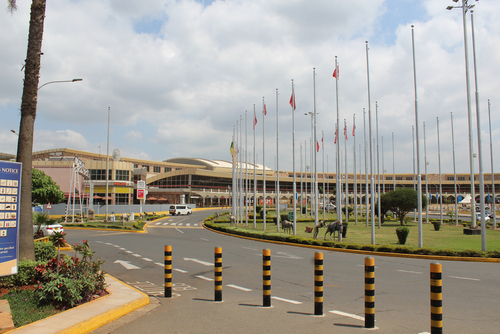Mai Mahiu tragedy: Ruto orders military to join search mission

President Ruto says 78 bodies have been retrieved so far and that 26 people are in hospital.
Military forces will join the search that has followed a tragedy in Mai Mahiu, Nakuru County, in which more than 70 people died after a gulley accumulated water and burst on the night of April 28.
President William Ruto issued this directive on Tuesday following a special meeting at the State House in Nairobi that discussed additional measures to mitigate the effects of torrential rains.
More To Read
- Government activates nationwide emergency response amid heavy rain advisory
- April to bring heavy rainfall, warmer temperatures - weatherman
- China gives over Sh370 million in flood relief for Mathare school children
- State gives Sh1bn in April stipends to over 323,000 vulnerable families
- Isiolo, Kwale, Kilifi and Taita Taveta among 33 counties facing boundary conflicts
- Brace for intensified rainfall, strong winds on Monday and Tuesday - Met
"We had already instructed the NYS [National Youth Service] to assist in the exercise but I have now directed the military to assist with the recovery of missing bodies. It is important that we all come together to address the issues," he said as he visited victims camping at Ngeya Secondary School.
 President William Ruto addresses victims of the Mai Mahiu tragedy in Nakuru County, who are camped at Ngeya Secondary School, on April 30, 2024. (Photo: PCS)
President William Ruto addresses victims of the Mai Mahiu tragedy in Nakuru County, who are camped at Ngeya Secondary School, on April 30, 2024. (Photo: PCS)
Ruto explained that he had sent leaders, including Deputy President Rigathi Gachagua, to assess the situation, but decided to visit the area following their feedback.
"The tragedy in Mai Mahiu has hit us hard. Many people are missing," the president also said, reporting that 78 bodies had been recovered and that 26 people had been admitted to various hospitals.
Ruto further announced that the Cabinet had approved the scaling up of measures to mitigate the impact of the floods.
We condole with the families that have lost their loved ones due to the floods in the country. We pray for quick recovery to the injured and pledge total Government support at all levels.
— William Samoei Ruto, PhD (@WilliamsRuto) April 30, 2024
A multi-agency rescue operation, including the military, is currently underway in all… pic.twitter.com/YY9yjD6CeI
Earlier on Tuesday, the Cabinet directed Kenyans living in areas vulnerable to natural disasters such as floods, mudslides, landslides, and riparian lands to evacuate in the next 48 hours.
It reviewed a report from the Kenya Meteorological Department that said the rains would persist in intensity and duration and warned that matters could worsen as soils are fully saturated.
It also noted that government agencies had finished mapping out all the fragile ecosystems around the country.
"Consequently, the Cabinet directed that all members of the public residing within these risky areas are required to move out within 48 hours," a Cabinet dispatch stated.
"These include areas near dams and other water reservoirs in public or private land, areas prone to mudslides and landslides and riparian lands along rivers and other water courses across the country."
Regarding dams and their overflow, the government said water levels at Masinga and Kiambere had reached historic highs, with Masinga recording its highest levels ever, surpassing those recorded in 2020. Kiambere reached its highest levels ever on April 26, 2024, surpassing levels last reached on November 29, 1997.
As such, residents of Garissa and Tana River counties, and others living near other dams and water reservoirs, were asked to move.
Top Stories Today














































